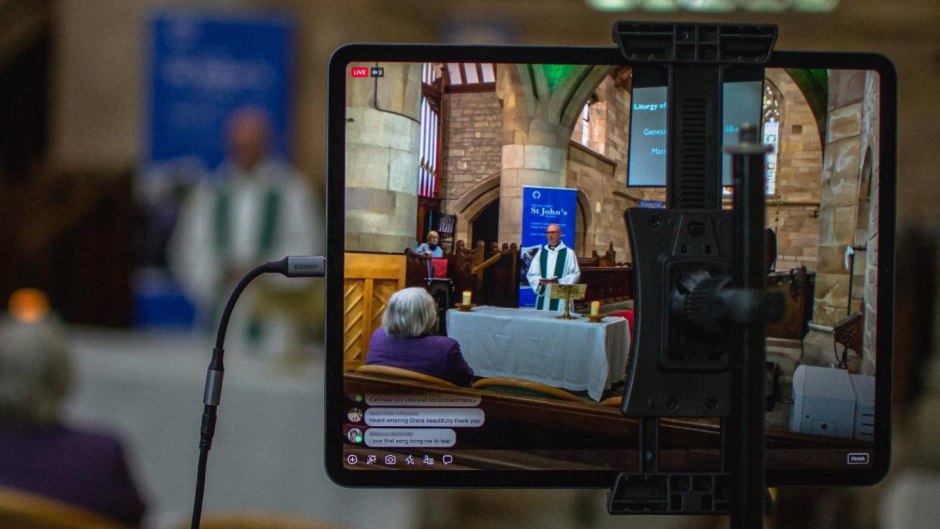Fewer children at services, drastic fall in numbers of ordinands: Church of England fails to recover after pandemic
Some churches are wondering how to “secure their future in a denominational structure that is moving away from them theologically and ethically”, says an Anglican minister in Newcastle.
LONDON · 09 APRIL 2024 · 15:31 CET

The Church of England has lost a fifth of people between 2019 and 2022, and over 40% of regular worshippers since the year 2000.
The most recent official statistics on the situation in parishes (local churches) across England after the Covid-19 restrictions show a drop in weekly adult attendance of 23% in 2022, compared to 2019.
The number of children attending Sunday church services fell even further in these four years, by 28%. There were less confirmations as well (-19%).
The decline in young people starting training for ministry is particularly dramatic, with numbers almost halving in the last five years.
The data service team of the Church of England, authors of the report, speak of a “post-pandemic bounce-back” because church attendance and activity has increased in the last two years. But many, like Ian Paul, an influential theologian and member of the General Synod, see “little sign of any post-Covid rebound”. The well-known blogger on Anglican issues thinks that the “conflict over sexuality is further depressing vocations, so the decline may grow worse in 2024”.
The fall in children attendance, a “frightening” sign
The situation of the Church of England is also critical according to Jonathan Pryke, senior minister at Jesmond Parish Church, in Newcastle. “The average numbers of children per Church of England church are frighteningly low, and rapidly collapsing”, he tells Evangelical Focus. 120 years ago, half of all children in England would attend a Sundays Schools every week.
It is true that “the pandemic years hit hard”, Pryke says. However, the health crisis that exploded in 2020 “simply made worse a decades-long trend of decline in the Church of England”.
The underlying issue, he says, is “a profound loss of confidence in the Bible as the living word of God, in the truth of the Biblical worldview, in the need for atonement and redemption, and in the power of the apostolic gospel to save”.
Decisions made by the Church of England leadership in recent decades have not only failed to increase people’s interest in the Christian faith, but have had the opposite effect, Jonathan Pryke argues.
“There is a terrible irony that a church that accommodates itself to non-Christian culture in order that it might be heard, is no longer listened to because it has nothing different to say. In general, where churches are growing, they have a robust view of Biblical authority and teach accordingly, with a sense of urgency about the gospel message”, the Newcastle church leaders says.
The internal LGBT debate
The very difficult debate around the blessing of same-sex marriages and LGBT inclusion has also been a factor in causing sense of disenchantment among many former churchgoers.
“Seeing the majority of the House of Bishops of the Church of England leading the church in this revisionist liberal direction is distressing and distracting”, says Jonathan Pryke.
“The move away from Biblical and apostolic doctrine and the attempt to abandon apostolic sexual ethics go hand in hand”, believes Jonathan Pryke. “The debates about sexual ethics and identity must be a major factor now in the continuing decline of the denomination, and of the reduction in numbers coming forward for ordination”.
Trying to re-define the traditional Christian understanding of marriage has not only caused division with other Anglican churches on a global level. Also in England, this has “forced churches that are seeking to remain faithful to the apostolic gospel into varying degrees of impaired communion or broken fellowship with their bishops”, says the minister of Jesmond Parish Church in Newcastle.
The crisis of the Church of England puts a question on the table. “How orthodox churches can secure their future in a denominational structure that is moving away from them theologically and ethically?”. The question mark remains “unresolved”, he adds. Giving an “authorised and legitimate place to a revisionism that rejects apostolic faith and ethics will be unacceptable to many” and the consequences in the future of the Anglican institution are to be seen.
Will money invested in mission bring fruit?
The Church of England leadership is trying to respond to the crisis. In March 2024, it announced the investment of 8.5 million pounds (nearly 10 million euros) to build new hubs for children and youth, as well as promoting church revitalisation projects - both in the north and the south of England.
Some of these initiatives can be a “blessing and have generated local growth”, believes Jonathan Pryke. But “the Word of God is the seed that God causes to grow by the power of the Spirit”, he concludes. “When that word is not being faithfully sown, mere financial investment is like watering ground that has no seed in it, and expecting a crop. And this is not going to happen”.
One more year
Learn all about our #OneMoreYearEF campaign here (English).
Published in: Evangelical Focus - europe - Fewer children at services, drastic fall in numbers of ordinands: Church of England fails to recover after pandemic
